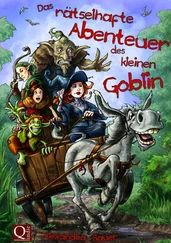He digs two thumbs into the hole and opens it up, sideways, outward. And then their bodies too are penetrated by air. Their bodies too take a portion of the air away from itself and hold it within a chamber. That part of the body foreign to itself and capable, suddenly, of speaking in its place.

In 1258 in Siena, Italy, an angel is said to have appeared in the town’s central square during a festival honoring the sacrifice of Saint Catherine. The angel, shrouded in a pure and glorious light, is reported to have consumed in curiosity a single grape from the well-stocked banquet, and fallen over immediately, killed.

A mouth is a tear in the wholeness of a being. From this moment on, he will find his breath leaking out from him continually, his body filling with the bodies of others, a circulation of others stepping in and out of the bounds of sensation. He will form the air into shapes with a meaning not his own, and he will hunger for the matter of others, transformed in the mouth into material raw and ready for reuse. In some accounts, a self comes into being with its first cry, its first utterance or gasp into a surround unmarked by its own voice. In others, a self is marked out only when it consumes living matter for the first time, asserting its own body upon the body of another and folding its life into that of its own. The mouth is a site of transformation at the boundary of inner and outer; it crushes the others up so that their thingliness can become someone else’s own.

The silent angel, his face smooth and markless as a piece of marble not yet shaped into statue. He sinks a whole fist into the mouths of the angels, twisting it this way and that, until the hole is large enough for the sounds of human language, for the words and full sentences. The wrist and forearm protrude from the heads of angels as he turns his fist around, creating space, and then opens it up slowly within the heads, making room for the teeth and tongue he will form from their matter.
The sun is quiet over the stones and the angels as they undergo their transformations. It will never again be so quiet in this field. The angelic mouths unmade, they have no way to gasp as the holes are put into them, as the pure and liquid tears collect around their eyes. All around them the stones are silent, the stones in the shape of whatever, in the shape of things that have no name but could, someday. Their necks each fit flush to their chosen stones, their stones cradling the necks that they may look up and out into the sky.

A Benedictine in 1120 AD testified that he was visited nightly by an angel who came to bear witness to the consumption of his simple meal of apples and bread. Questioned by his abbot as to the moral purpose of these visits, the man had nothing to report, save that his observer grew angry if an attempt was made to cover up or otherwise conceal his rations, particularly if the monk strove out of modesty to obscure the view of his mouth.

1. Because they are made in the shape of God, which is the shape of man and because they are man’s brethren.
2. Because they measure the distance that inheres within man himself, as do the beasts.
3. Because the body of the word and the body of the stone are not the same thing, or because they are.
4. Because an angel is said to perish from taking human food, when a man dies of choking we say that he has received a holy death, heralding his joyful passage into realms higher and more glorious.
5. The saliva of an angel is said to improve the quality of matter and raise it to a state of greater perfection, much as the saliva of man is said to degrade it, and it is reported that a mealy apple thus inserted into the mouth of an angel and stored there for a time shall emerge fresh and devoid of flaws when it is drawn back out.
6. Because the thing and the thought are not one, or because they are.

The angels mill about in the fields, picking things up from off the ground and sticking them in their mouths. The cattle regard them in passivity, and wonder. An angel discovers a small pebble and places it within the cavity. He extracts it, and behold: a pebble of the same size, shape, and specification — but now composed of solid gold. An angel regards a small flower, and plucks it from the ground. He places it in his mouth and, lo: what he removes from his mouth is no flower, but a single word. He holds the word up before the eyes of the other angels and they rejoice, marveling in the miracle of flesh made abstract. They pass the word from angel to angel, holy hand to holy hand, turning it over in their palms and observing it from every angle. The sun weighs on them from overhead, weighs like light upon them all, as they tilt their faces up toward the source, mouths open, joyful, and light touches the backs of their mouths, the unbroken backs of their throats.
WORKS CITED
Durandus of Saint-Pourçain, Durandi a Sancto Porciano in Petri Lombardi Sententias Theologicas Commentarium, book 4. Venice, 1579; reprint, Ridgewood, NJ: Gregg Press, 1964.
Iribarren, Isabel, and Martin Lenz. Angels in Medieval Philosophical Inquiry: Their Function and Significance. Burlington, VT: Ashgate, 2008.
On the first day comes the new shipment of cotton balls, bundled in blocks and factory-wrapped, masses of plastic-trapped white that hit the floor with half as much sound as expected. On that day, we begin again: plunging long knives through the blocks, cutting straight lines along the top and sides. Cotton balls sputter from slits we stanch with our hands while we cut them free. The next day we sort. At the cotton ball factory they strive to make them all the same, but variation creeps into the shapes, some barely larger, some barely lacking. Their near-uniformity makes the differences more startling. We search the mounds for ugly ones, the ones whose variance disgusts us.
This cotton ball is fine. So is the next. The next after that suffers from a deformity, a small tuft of fluff strung out like a tail. I set it aside for mending. The next is all right, and the next.
But the cotton ball after that has something wrong with it, more wrong than we’ve ever seen. On a white table in this spotless room sits a puff of white with a bright red blotch, an urgent liquid color soaking the center of a dry nothing. We gather around, afraid to touch the spot with our gloves, afraid of the color lingering on our suits.
Cotton ball after cotton ball, all stained, arriving on the conveyor belt and falling off into a basket with the clean ones. Color everywhere. We look toward the cotton heap growing redder. We look toward the reddening heap knowing that one of us will need to go into it and discover what is leaking.

The rabbits are white, and when I stack them they stay put, looking back at me from a creamy vagueness dotted with eyes. Rabbits are edible. They have bony bodies beneath the fleeciest fur, like whisked clouds or something even lighter. Dozens on dozens shuffle across the floor in short bursts, hopping weakly then growing tired, making the sound of teeth sinking into marshmallow. Press an ear to a rabbit mouth and hear a soft chuffing, a machinery made of cotton.
Читать дальше













